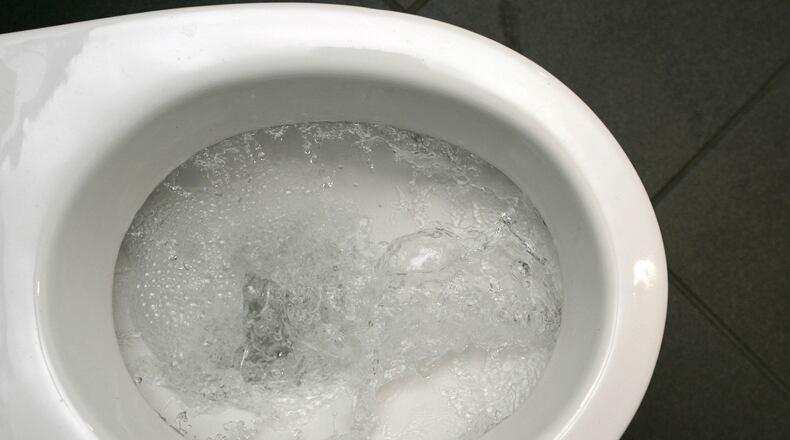If you take your smartphone to the restroom with you, you might want to rethink that habit.
A 2011 study by the London School of Hygiene and Tropical Medicine found fecal matter on 1 out of every 6 smartphones. University of Arizona microbiologist Charles Gerba went even further with his research, which found that cellphones carry 10 times the bacteria of most toilet seats.
Part of the reason is that toilets get cleaned more frequently, Gerba said. People associate the bathroom with germs. Cellphones are often overlooked.
Here are five common items that are often left out of the cleaning routine:
Credit: Pablo Blazquez Dominguez/Getty Images
Credit: Pablo Blazquez Dominguez/Getty Images
Electronic devices
Cellphones are not the only electronic devices named as the dirtiest items in the home. Remote controls for televisions, DVD players and streaming devices are also overlooked during most cleanings.
Tablet devices like the iPad are also culprits, USA Today reported. If multiple people use the devices, it spreads the germs and the subsequent illness.
To clean: Electronic device surfaces can be wiped clean with disinfectant.
Credit: AP Photo/Marco Garcia
Credit: AP Photo/Marco Garcia
Kitchen sink
A home’s kitchen sink carries more bacteria than both the toilet and the garbage can, Gerba’s research found.
"There's more fecal bacteria in a sink than there is in a flushed toilet," Gerba told "Today." "That's why dogs drink out of the toilet. They know better than to drink out of the kitchen sink," he joked.
Even worse is a kitchen sponge, which Gerba found carries up to 200,000 times more bacteria than a toilet.
To clean: Gerba said kitchen sinks should be washed daily with hot, soapy water, particularly after contact with raw meat or poultry. Used sponges should be wet and popped into the microwave for a minute to sanitize them.
Credit: Michael Bradley/Getty Images
Credit: Michael Bradley/Getty Images
Playground equipment
Those colorful playground sets that children love so much have proven to be magnets for bacteria.
"I won't let my grandchildren go into playgrounds, though some of them do have hand sanitizing stations these days," Gerba told "Good Housekeeping." "Playgrounds are essentially public toilets for birds."
To clean: If you allow your children to play on public playgrounds, bring plenty of hand sanitizer, Gerba said.
Credit: David McNew/Getty Images
Credit: David McNew/Getty Images
Reusable shopping bags
Reusable shopping bags are a great way to help the environment, but they can harbor health threats, including E. coli bacteria, Gerba found. The levels of bacteria found were significant enough to cause serious illness, or even death.
"Furthermore, consumers are alarmingly unaware of these risks and the critical need to sanitize their bags on a weekly basis," Gerber said in a 2010 University of Arizona news release.
To clean: Thoroughly wash all reusable bags, including with bleach if desired.
Credit: Stuart Wilson/Getty Images
Credit: Stuart Wilson/Getty Images
Shoes
Gerba found that it takes just two weeks for a brand new pair of shoes to collect as many as 421,000 of bacteria, according to a study of germs collected on footwear.
"The common occurrence (96 percent) of coliform and E. coli bacteria on the outside of the shoes indicates frequent contact with fecal material, which most likely originates from floors in public restrooms or contact with animal fecal matter outdoors," Gerba said.
To clean: Throwing machine washable shoes into the machine with detergent eliminates all fecal bacteria and reduces all bacteria by 90 percent or more, Gerba found.
About the Author
The Latest
Featured







